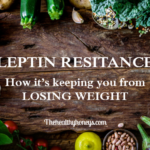
Emotional Eating
Although weight loss often seems simple enough, many people often focus so much on the physical aspect of it, without realizing there is a strong mental and emotional connection with food that needs to be addressed. This is called emotional eating. Think for a minute about the times you turn to food. Is it always because you are hungry? When I feel stressed or overwhelmed I often turn to food. Emotional eating often also happens during the holidays.
In her book Emotional Overeating, Dr. Sirota discusses how our constant eating especially when associated with uncontrolled weight gain is a psychological problem. She says,
“We’re compulsive in our eating behaviors, whether this means binge eating, restricting, purging, or a combination of all these. […] Both compulsive eating and compulsive food restricting (dieting) cause a behavioral vicious circle in which overeating leads to remorse, self-recrimination, heightened obsessions and further overeating.”
If you want to be successful in losing weight it is not just the physical habits that need to be changed, but also the way you use food and how you cope with your emotions. Eating fatty, salty, or sweet foods is not bad in and of itself. It is when we reach for these foods to fill an emotional need that it may become a problem.
Dealing with our emotions in healthy ways will help in our weight loss journey as well as our emotional health.
Steps to take to manage our negative emotions and confront emotional eating.
- Honor your emotion: Allow yourself to experience and recognize the emotion. Eating is often used as a way to mask our negative emotions and thus not have to acknowledge them. When we take the time to address our emotion and recognize we avoid the unhealthy habit of turning to food and we also begin a first step in being able to reconcile those emotions within ourselves.
- Express negative emotions in productive ways: We are socialized to believe that expressing negative emotion is bad and weak. I agree that there are healthy ways to express them, however, we often turn to suppressing our emotions instead. We can talk with a friend, write in a journal, go to counseling, spend some time meditating and praying.
- Self-love: We often berate and beat ourselves up because we fail or aren’t perfect. We need to take opportunities to build ourselves up in positive ways and recognize the abilities and strengths our body has.
- Recognize triggers to emotional eating: Examine your life to see what triggers you to emotionally eat. When my kids overwhelm me I run to the kitchen to grab some chocolate before continuing on. Take some time to write down triggers that you recognize in your life and address ways in which you can fix that problem. For instance, I need to implement some different parenting strategies or address what is causing me so much stress and decide how I will address the problem in a healthier way.
- Look outward: It is harder to put our own stresses into perspective when we only focus on ourselves. By looking out to others and seeking opportunities to help other people we can put our own problems into perspective.
- Think positively: I don’t mean don’t address our problems but there is no use in playing negative emotions over and over again in our mind. We need to honor and address the problem constructively, allow ourselves to feel, and when we find ourselves replaying a useless negative narrative in our head to change our thoughts to more positive or constructive thoughts.
There are often very difficult things that we must go through and at times we may find the stresses and sadness in our life unbearable. In such cases, you can work with a professional counselor to seek recovery.
So my assignment to myself this week is to write down my triggers and find healthy ways to address them and to journal about the rest of the steps as I go throughout my week.
Learn more about losing weight by following our Healthy Habits series.
Other Posts in Our Healthy Habits Series:
- Sleep
- Addressing Emotional Eating
- Fueling our bodies with nutritious meals, with plenty of fruits, veggies, and good protein
- Controlling our blood sugar.
- Ditching the junk in our foods
- Proportionate meals
- Discover a type of movement that inspires and invigorates us
- Make exercise a daily ritual
- Managing time to feel and be productive
- Take an inventory of my emotional health
- Time management
- Positive self-talk
- Addressing Food Addiction
- Addressing Leptin Resistance
Like this post? Please share it by:
Pinning it here!







